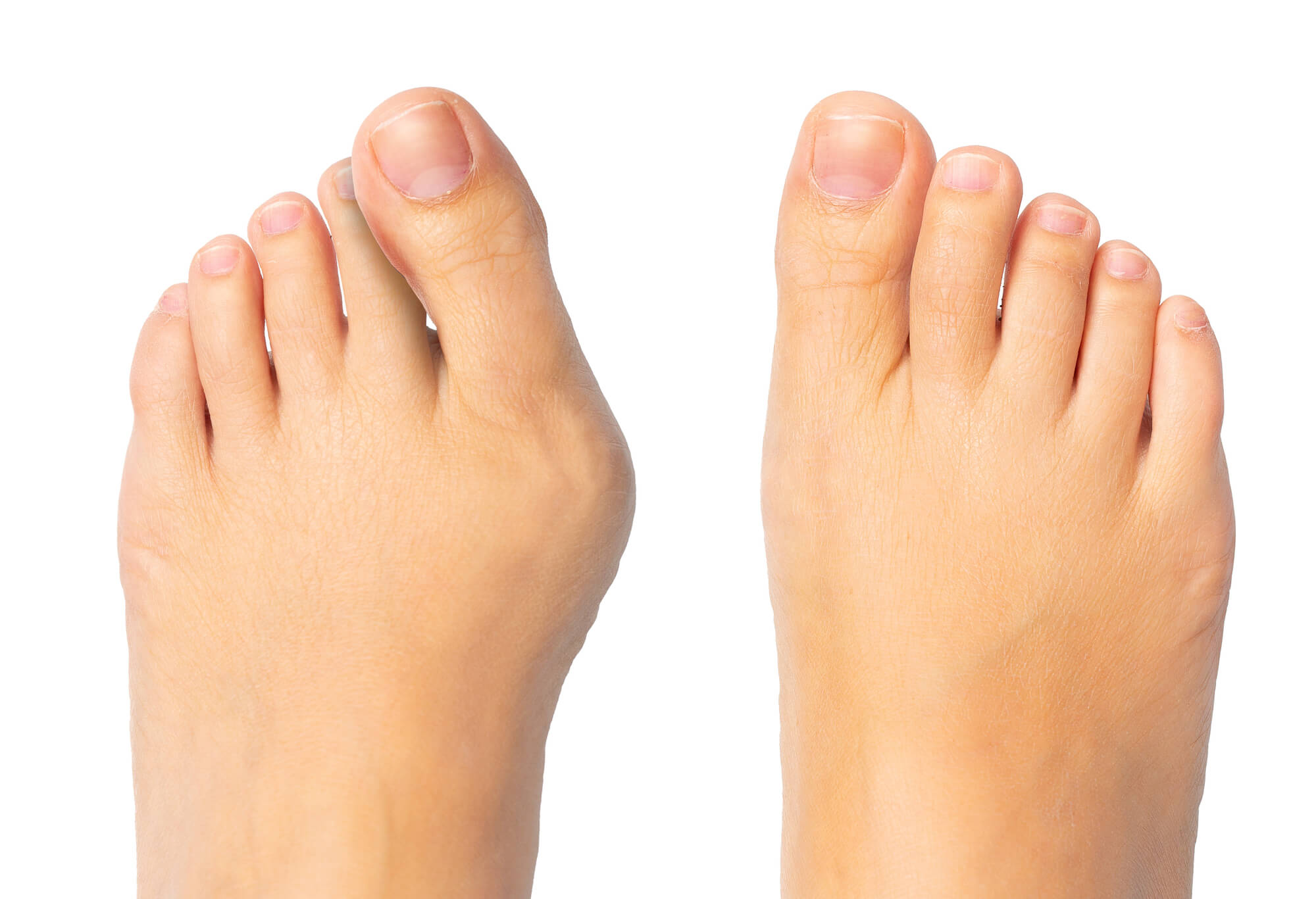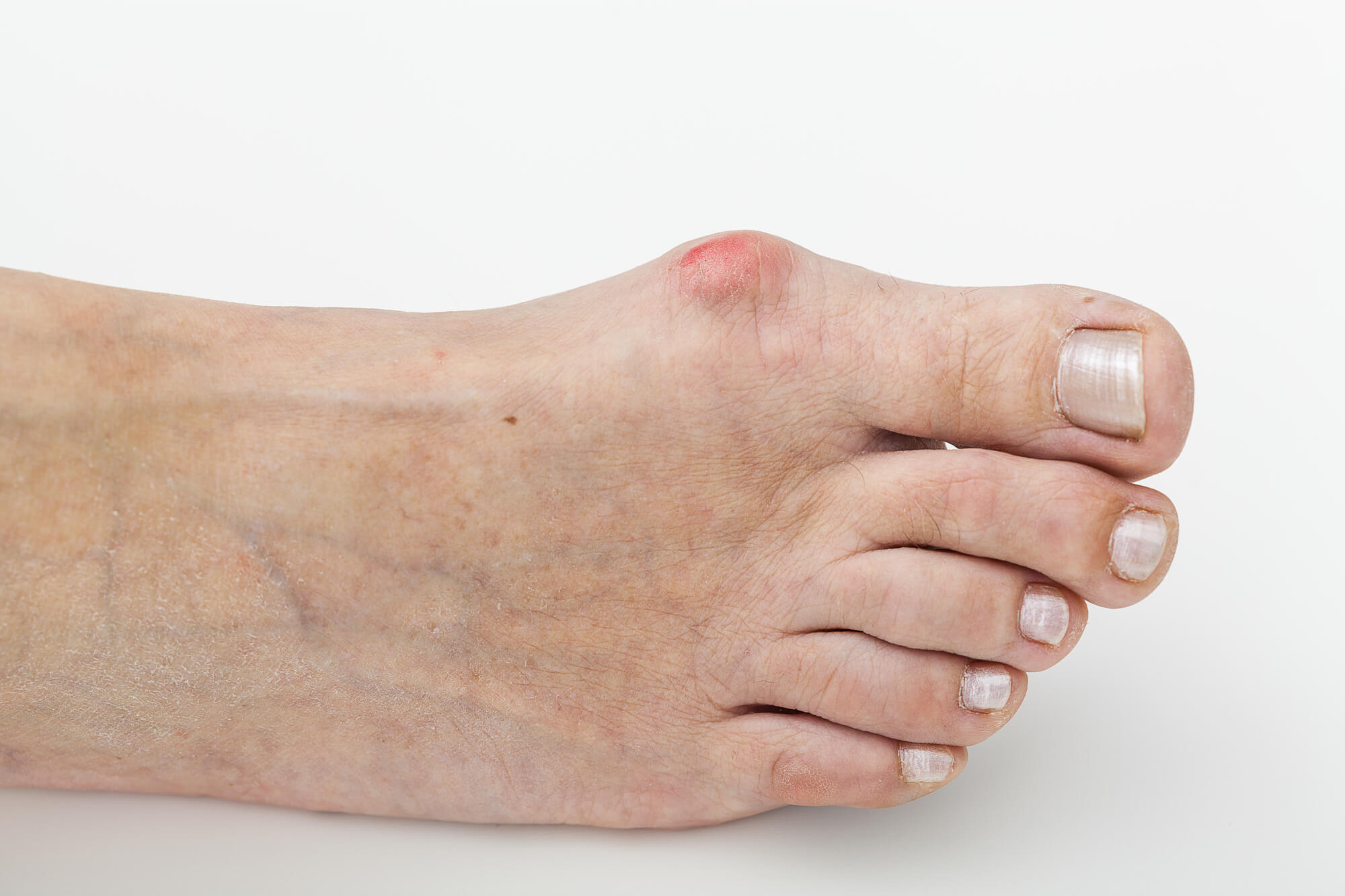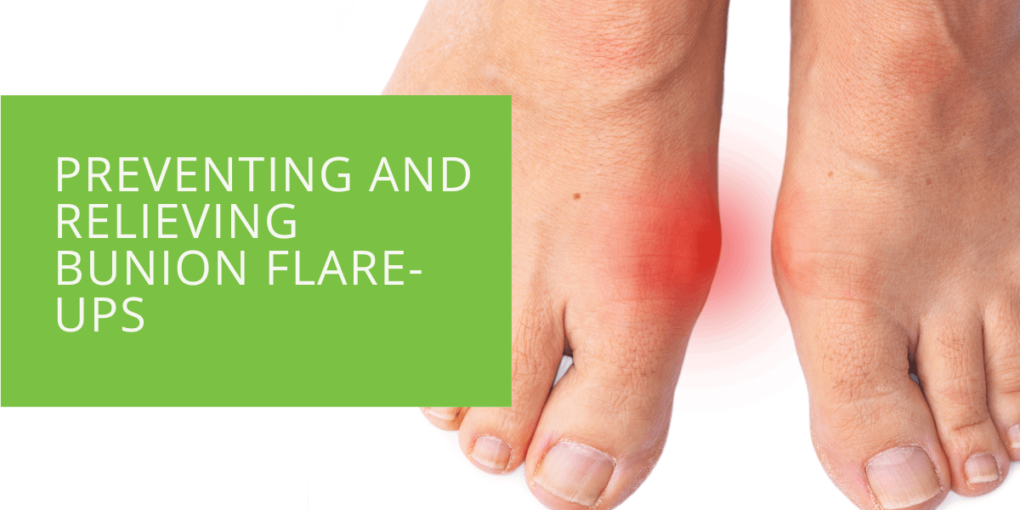Preventing and Relieving Bunion Flare-Ups
Bunions (hallux valgus) are a common foot condition characterized by a bony bump at the base of the big toe joint. This deformity can cause pain, swelling, and difficulty walking, leading to bunion flare-ups. This article will discuss the causes of flare-ups and provide tips for preventing and relieving pain.
Understanding Bunion Flare-Ups
Bunion flare-ups occur when the soft tissue surrounding the bony bump becomes inflamed and irritated. This can lead to pain, swelling, and difficulty moving the big toe. While they are often painless, they can cause discomfort and pain if they become inflamed or infected.
Causes of Bunion Flare-Ups
Bunions are a foot deformity when the joint connecting the big toe to the foot becomes misaligned. This misalignment can cause the joint to protrude outward and create a bony bump on the foot's side, leading to pain and inflammation.
Genetics
Genetics can play a significant role in the development of bunions. If your family members have a history of bunions, you may also be more likely to develop them. Inherited foot structure and mechanics can cause abnormal pressure and alignment on the feet, forming bunions and flare-ups.
Footwear
Wearing poorly fitting shoes is a leading cause of bunions and bunion flare-ups. Shoes that are too narrow, tight, or have a pointed toe box can put excessive pressure on the big toe joint, causing it to shift and become misaligned. High heels can also contribute to the development of bunions, as they force the body's weight forward and put pressure on the toes.

Arthritis
Arthritis is a common cause of flare-ups, particularly rheumatoid arthritis. This autoimmune disease causes inflammation and swelling throughout the body, including the joints. When rheumatoid arthritis affects the joints in the feet, it can cause misalignment and bunion formation.
Foot Deformities
Certain foot deformities, such as flat feet or high arches, can put extra pressure on the big toe joint and cause bunions. Additionally, some people have a natural tendency to roll their feet inward when they walk, which can also contribute to the development of bunions.
Prevention Strategies for Bunion Flare-Ups
Bunions are a common foot condition that can cause pain, inflammation, and difficulty walking. While they are often hereditary, there are several strategies you can use to prevent the formation of bunions and reduce your risk of flare-ups.
Wear Properly Fitting Shoes
Wearing properly fitting shoes is one of the most important steps to prevent bunion flare-ups. Shoes that are too narrow, tight, or have a pointed toe box can put pressure on the big toe joint, causing it to shift and become misaligned. Choose shoes with a wide toe box that allows your toes to move freely. If you must wear high heels, choose those with a lower heel and wider toe box.
Use Orthotics or Inserts
Orthotics and shoe inserts can provide additional support for the foot and ankle, helping to reduce pressure on the big toe joint and prevent the formation of bunions. They can also help alleviate pain and reduce the risk of bunion flare-ups. Your podiatrist can recommend the best orthotics or inserts for your specific needs.
Avoid High Heels
High heels can contribute to the development of bunions by forcing the body's weight forward and putting pressure on the toes. If you must wear high heels, choose those with a lower heel and wider toe box to reduce the risk of bunion formation.
Maintain a Healthy Weight
Maintaining a healthy weight can help reduce the risk of bunion formation and bunion flare-ups. Excess weight puts additional pressure on the feet, which can contribute to the misalignment of the big toe joint. Regular exercise can help you maintain a healthy weight and reduce your risk of developing bunions.

Stretch Your Feet and Toes
Stretching your feet and toes regularly can help prevent the development of bunions and reduce the risk of flare-ups. To stretch your toes, try picking up marbles with your toes or using your toes to pick up a towel.
Use Foot Creams
Using foot creams that contain ingredients like urea, salicylic acid, or alpha-hydroxy acids can help soften and exfoliate the skin on your feet, reducing the risk of corns and calluses that can lead to bunion pain and inflammation.
When to Seek Professional Help
If you are experiencing persistent bunion pain, seeking professional help from a podiatrist is important. A podiatrist can diagnose and treat the underlying cause of your pain and recommend the best treatment options for your specific needs.
Treatment Options for Bunion Flare-Ups
If you are experiencing bunion flare-ups, several treatment options are available to help relieve pain and reduce inflammation. Over-the-counter pain relievers such as acetaminophen or ibuprofen can manage pain and reduce inflammation. Additionally, icing the affected area can help reduce swelling and alleviate pain. Cortisone injections may also be recommended for more severe pain and inflammation.
Orthotics and Custom Footwear
Orthotics and custom footwear can help alleviate bunion pain and reduce the risk of flare-ups. Orthotics are custom-made inserts to provide additional support and cushioning for the foot and ankle. Custom footwear is designed to fit your foot perfectly, reducing pressure on the bunion and alleviating pain.
When to See a Podiatrist
If you are experiencing persistent pain, redness, swelling, or difficulty walking, it may be time to see a podiatrist. A podiatrist can diagnose and treat foot and ankle problems, including bunions and bunion flare-ups. Depending on the severity of your condition, your podiatrist may recommend surgery to remove the bunion and realign the toe joint.
Conclusion
Bunion flare-ups can be painful and debilitating, but several ways exist to prevent and manage them. You can reduce the risk of flare-ups by preventing bunions from forming, such as wearing properly fitting shoes and using orthotics or inserts. If you are experiencing pain or inflammation, over-the-counter pain relievers, icing, and custom footwear can provide relief. If your symptoms persist, seeing a podiatrist is important to diagnose and treat any foot and ankle problems. By taking good care of your feet, you can prevent bunion flare-ups and maintain good foot health.

